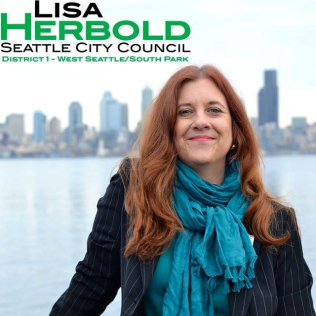Seattle officials began discussing this issue back in February – see my post about this here. The council members spearheading this are concerned with employees having what they call a “livable schedule.” Liberals love the term “livable”, especially when they can use it to force private businesses to meet their “progressive” demands.

From the Seattle Times: Jerry Cole has a landscaping business. Four years ago, in order to make ends meet, he took on a second job as a courtesy clerk at the Rainier Beach Safeway. But the scheduling demands of the second job — including erratic hours and a schedule that isn’t posted until three days before the workweek starts — makes it difficult to do his first job.
“It’s hard to schedule my landscaping business with clients on a regular basis because I’m having to juggle my landscaping around when I have to be at Safeway week to week,” he said.
Stories from workers such as Cole are spurring some Seattle City Council members and Mayor Ed Murray to devise a scheduling law that could affect thousands of workers and many retailers in the city.
Worker and employer representatives are meeting — in separate groups — to pin down what they want, or at least what they can live with.
Business groups, including the Washington Restaurant Association, seem to accept that some kind of scheduling regulations are coming down the pike, and are quietly striving for rules that won’t be too onerous or inflexible.
But behind the scenes some heated words are already flying. “I now am questioning if you are trying to help people or just penalize businesses for being in business,” retired Starbucks President Howard Behar wrote in an email, addressed to Councilmember M. Lorena González and copied to other members, on the scheduling issue. “I am disgusted with this city government.”

Councilmember Lorena González
In the two official working groups, ideas on the table from the workers’ representatives include:
- Two weeks’ advance notice of schedules
- A minimum of 11 hours’ rest between shifts, except when workers voluntarily choose to work with less rest
- An hour of additional “predictability pay” when an employer changes a worker’s posted schedule
- Up to four hours’ pay for workers who are assigned shifts that are either canceled, or reduced to less than four hours, with less than 24 hours’ notice
- Offers of additional hours must go to existing part-time employees before new employees can be hired
Some business representatives have suggested more limited measures, including:
- One week advance notice of schedules
- 10 hours’ rest between shifts
- An hour of additional “predictability pay” only for changes to the posted schedule initiated by employers
The business group is still discussing the remaining issues proposed by the worker representatives: pay for workers whose shifts are canceled or reduced, and giving part-time workers preference if more work hours are available.
Both groups are reportedly leaning toward having the law apply to large retailers and franchises, although specifics of what constitutes “large” and whether local restaurants should be included are still being hammered out.
An online survey of both workers and managers is under way to get a better idea of scheduling practices around the city and how those practices affect workers’ lives.

González, who, along with Councilmember Lisa Herbold is spearheading the scheduling issue on the council, anticipates bringing legislation to the full council in August.
The goal, González said, is to “recognize the needs of business to be nimble in their scheduling practices, but also provide maximum protection to the most number of workers so we’re delivering on the promise of economic security to hourly workers.”
Read the rest of the story here, including Starbuck’s stance on this proposal (Starbuck’s is not participating in Seattle’s employer group talks yet they are answering questions for the city council).
DCG

